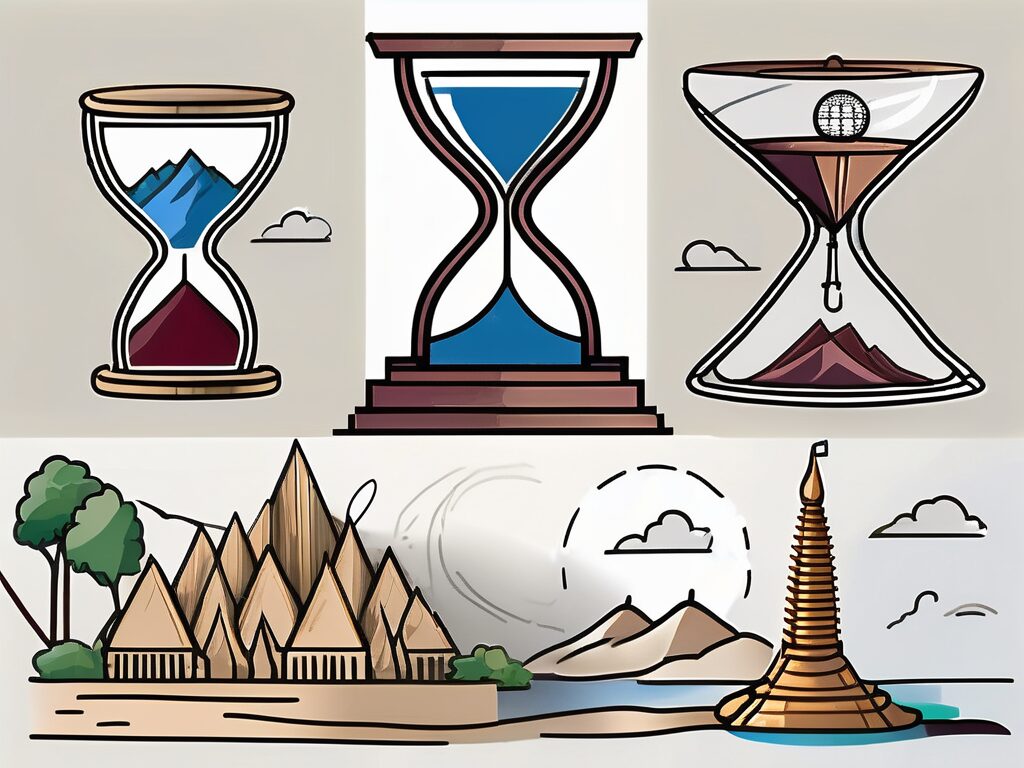Education is a universal language that transcends borders. However, the challenges faced by educators with a Master’s in Education can vary significantly from one country to another. In this context, we will delve into the teaching challenges in two diverse countries – Thailand and Qatar. We will explore four key comparisons, shedding light on the unique experiences of educators in these nations.
1. Cultural Differences
Thailand
Thailand, known as the ‘Land of Smiles’, has a rich cultural heritage that permeates every aspect of life, including education. Teachers with a Master’s in Education often grapple with understanding and integrating these cultural nuances into their teaching methods. For instance, the Thai culture places a high emphasis on respect for elders, which translates into a hierarchical classroom structure. This can sometimes stifle open discussions and critical thinking, as students may hesitate to question or challenge their teachers.
Moreover, the Thai language, with its unique script and tonal nature, can pose a significant challenge for foreign educators. Even though English is taught in schools, the level of proficiency varies widely, making communication a hurdle in many instances.
Qatar
Qatar, on the other hand, is a melting pot of cultures due to its large expatriate population. However, the Qatari culture, rooted in Islamic traditions, is the dominant influence in the education sector. Teachers must respect these traditions, such as the separation of genders in classrooms and the observance of prayer times, which can disrupt the usual flow of a Western-style class schedule.
Arabic is the official language of Qatar, and while English is widely spoken, teachers may still face communication barriers, especially when interacting with local students and parents. Understanding the nuances of the local dialect can be a steep learning curve for educators.
2. Educational Systems and Policies
Thailand
Thailand’s educational system is heavily influenced by the government’s policies. The Ministry of Education oversees all levels of education, and changes in leadership often lead to shifts in educational priorities. This can be challenging for teachers as they have to adapt to new curriculums and teaching methods frequently.
Furthermore, Thailand’s focus on rote learning and standardised testing can limit the scope for creativity and innovation in teaching. Teachers may find it difficult to implement modern pedagogical methods that encourage critical thinking and problem-solving skills.
Qatar
Qatar’s educational system, in contrast, is undergoing a significant transformation. The Qatar National Vision 2030 emphasises the importance of quality education and has led to the implementation of various educational reforms. However, these rapid changes can be overwhelming for teachers as they have to keep up with the evolving educational landscape.
Moreover, the high expectations placed on teachers and students alike to achieve world-class educational standards can create a high-pressure environment. This can lead to stress and burnout among educators, affecting their teaching efficacy.
3. Technological Integration
Thailand
Thailand’s progress in integrating technology into education has been relatively slow. While there are initiatives to introduce digital tools in classrooms, the lack of infrastructure and training often hampers their effective implementation. Teachers may struggle with the lack of resources and support in utilising technology for teaching.
Qatar
Qatar, on the other hand, is at the forefront of educational technology in the Middle East. The government’s push for a knowledge-based economy has led to significant investments in educational technology. However, the rapid pace of technological advancement can be daunting for teachers, who must continually update their skills to incorporate these tools into their teaching effectively.
4. Professional Development Opportunities
Thailand
In Thailand, professional development opportunities for teachers are often limited. The focus is primarily on in-service training, which may not adequately address the diverse needs of teachers. This lack of continuous professional development can hinder teachers’ growth and their ability to improve their teaching practices.
Qatar
Qatar, in contrast, offers numerous opportunities for professional development. The Supreme Education Council provides various training programmes and workshops for teachers. However, the high turnover rate of expatriate teachers can make it challenging for them to fully benefit from these opportunities.
In conclusion, teaching with a Master’s in Education in Thailand and Qatar presents unique challenges shaped by cultural, educational, technological, and professional factors. Understanding these challenges can help educators navigate the complexities of teaching in these diverse settings and contribute to the betterment of education in these countries.
Enhance Your Teaching Career with The IQTS at UWE
As an educator facing the unique challenges of teaching in Thailand, Qatar, or any other international context, you understand the importance of professional development and global adaptability. The International Qualified Teacher Status (iQTS) programme at The IQTS at UWE is designed to elevate your teaching credentials, offering a Level 7 qualification that not only increases your chances for career advancement but also connects you with a wider professional community. With the iQTS, you’ll gain a deeper understanding of international curricula and become part of the 90% of participants who are satisfied with the insights provided, making you 65% more adaptable in diverse educational settings. Don’t let barriers hold you back. Make Your Next Step towards a more fulfilling teaching career with the flexibility of our online study options tailored for working educators like you.

